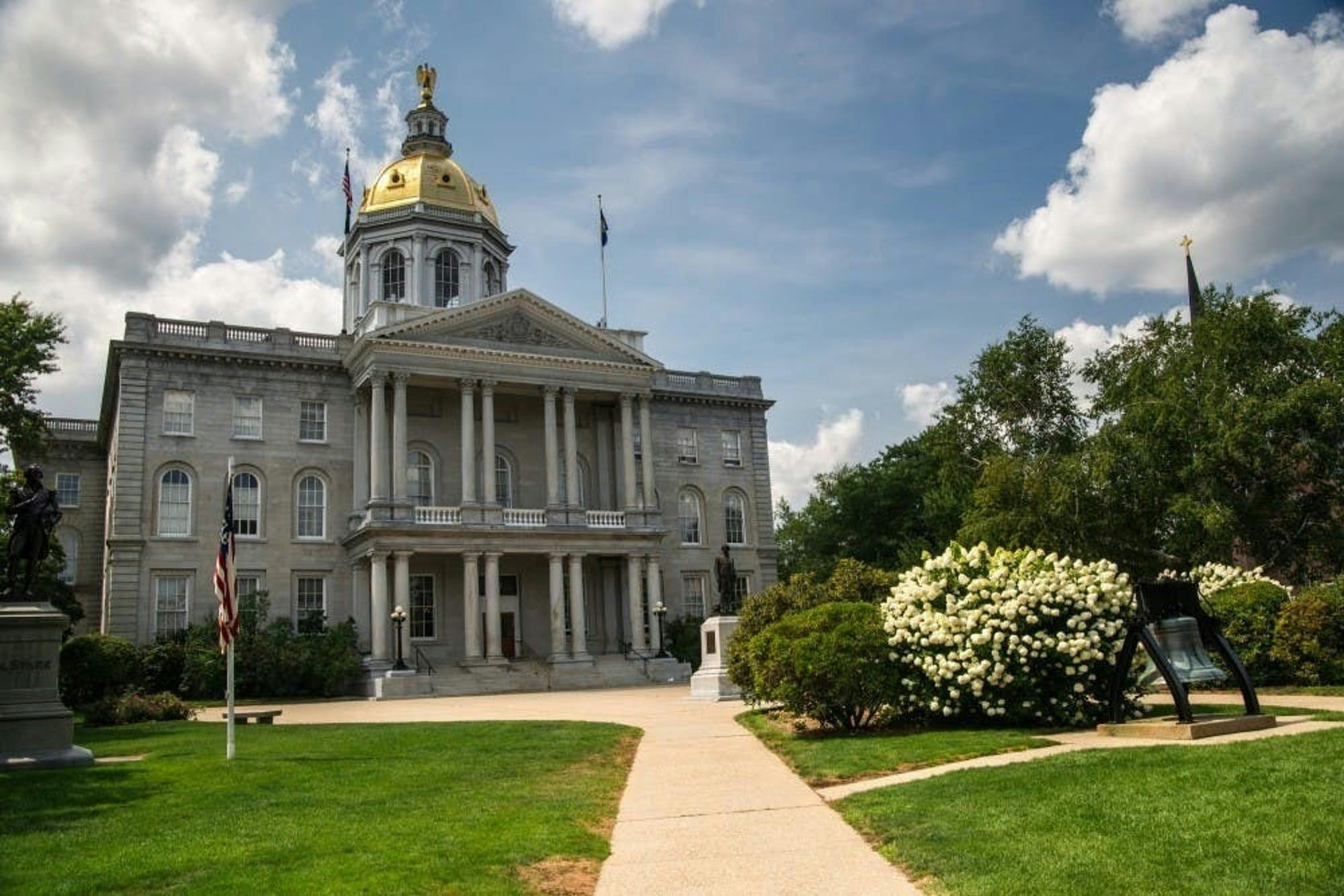New Hampshire governor Chris Sununu signed a controversial new statewide budget bill into law Monday. Items included in the budget bill include new restrictions on abortions, limits on the teaching of concepts like critical race theory by public institutions and checks on the governor’s power to declare a state of emergency. All four of Hanover’s representatives in the state House voted against the bill.
State representative Sharon Nordgren, D-Hanover, said that the bill was one of the most “radical” bills she had seen signed into law in her time in office. State representative and government professor Russell Muirhead, D-Hanover, added that he believes Republican representatives opted to add these “toxic” amendments in order to satisfy extremists within their party.
“None of what [Republicans] proposed in the budget could have passed on their own merits,” Muirhead said. “They didn’t even try to make a centrist coalition.”
Among the most controversial of the amendments is a provision that would ban the teaching of “discrimination” — for example, the idea that someone is inherently racist or oppressive due to their race or background — by public employers and in schools. The bill also included language that would exempt workplace sensitivity training and public university faculty from potential liability from suits by students or employees. In response to the inclusion of this provision, 10 members of the 18-member Governor’s Advisory Council on Diversity and Inclusion resigned.
Muirhead said that while the bill is unlikely to have any impact on Dartmouth faculty, as Dartmouth is a private institution, it could act to “censor” public school teachers in conversations on race and history. He added that because the language of the bill is not specific in scope, it could serve to prevent teachers and employers from speaking freely in the classroom or the workplace about these sensitive topics.
“It’s a page out of a totalitarian handbook,” Muirhead said. “If state bureaucrats find that what teachers are saying violates the law, school systems will be vulnerable to losing state support.”
Kate Hilton ’99, who previously petitioned the College to take a stand against a prior controversial budget bill, said that this amendment acts as an “equity gag order” to prevent discussion of systemic racism and sexism in schools, police departments and other public employers. She added that while the bill’s provisions will only last until July 2023, it still presents major problems for educators.
“There will be a big legal fight over the constitutionality of the bill, and there will probably be legal fights in the school systems over this bill that will cost taxpayers money,” Hilton said.
Hilton added that she thinks Dartmouth as an institution should take steps to combat the bill, such as submitting an amicus brief on the impact that the bill may have on the families of Dartmouth employees. She also called upon the College to issue a statement opposing this amendment.
In contrast, Rep. Jess Edwards, R-Auburn, a co-sponsor of the bill, said that the amendment is intended to strengthen previous anti-discrimination legislation. He added that the bill will prevent schools and employers from telling individuals that they are inherently “guilty” due to an aspect of their identity.
“Schools should still teach the rich context of the American experience, the good and the bad,” Edwards said. “However, they need to pull short of pointing to the white kids in a class and saying, because of your race, you are inherently oppressors.”
Another controversial provision of the budget bill introduces new restrictions on abortion. The amendment makes abortions after 24 weeks illegal, except in cases of medical emergency. Dartmouth-Hitchcock Medical Center is the only hospital in New Hampshire that currently performs abortions at or after 24 weeks, and nder current New Hampshire law, there is no threshold past which an abortion cannot be performed. Additionally, before any abortion is performed, a doctor would be required to perform an ultrasound to determine the age of the fetus.
DHMC did not respond to requests for comments by press time.
Nordgren said that this bill may make it harder to recruit and retain OB/GYN doctors and nurses, as they could be held criminally liable for performing an unauthorized abortion. She added that the ultrasound requirement could also act as a “shaming mechanism” to discourage women from getting an abortion.
“This bill is just a form of harassing people who may need reproductive services,” Muirhead said. “It is a fundamental attack on the autonomy of medical doctors and women.”
Edwards said that this amendment was intended to provide a balance between the rights of a mother and the rights of an unborn child. He added that the limit was set at 24 weeks to ensure that women would have access to full testing to make an informed decision on whether or not they want to carry their baby to term.
“At some point, we have to respect the life of the unborn,” Edwards said. “A lot of other states have set limits after 24 weeks.” Currently, 23 states set restrictions on abortion at 24 weeks or earlier.
The budget, which was passed with only Republican votes, also includes significant tax cuts and the introduction of paid family medical leave. Additionally, the bill requires the New Hampshire governor to address the state legislature every 90 days when a state of emergency is in place. This amendment was added to the bill due to controversies over Sununu’s handling of the pandemic.
Edwards said that some of these non-budget amendments, like the restrictions on the governor’s emergency powers, were added into the budget as it would make it harder for Sununu to veto the bill. He added that Sununu, while initially opposed to this amendment, ultimately agreed to the reform to give some political power back to the legislature.
Nordgren said that “right wing radicals” in the state House made these amendments a “requirement” in order to pass a budget, and that these Republican house members are looking to pass further restrictions on the governor’s powers in future legislative sessions.
Dartmouth Democrats president Miles Brown ’23 said that he was “very disappointed” in the passage of the bill, and added that the bill shows the consequences that local and state government races can have.
“While Democrats won many of the races at the top of the ticket, we didn’t do so well in the other races,” Brown said. “Even though these races are not as glamorous, they’re really important for us to focus on.”
Brown added that the Dartmouth Democrats will be distributing information to students and Dartmouth community members about the bill, and that they are looking forward to energizing the student vote for the 2022 midterm elections as a potential opportunity to retake the state house, senate and executive council.
Nordgren said that she thinks this budget could hurt Sununu’s future political ambitions, especially if he attempts to run against Democratic Sen. Maggie Hassan in 2022. She added that while Sununu had a lot of support for his response to the pandemic, he will have to answer for “following the radical right.”
Muirhead said that the bill “should raise some deep concerns in the electorate, and it could weaken [Sununu’s] ability to run a successful campaign.”
New Hampshire house representatives and co-sponsors of the bill Lynne Ober, R-Hudson, and Karen Umberger, R-Kearsarge, did not respond to requests for comment. Rep. and co-sponsor Ken Weyler, R-Kingston, declined to comment, writing in an email that he felt that Dartmouth was “so extremely liberal” that any interview “would be slanted.”




